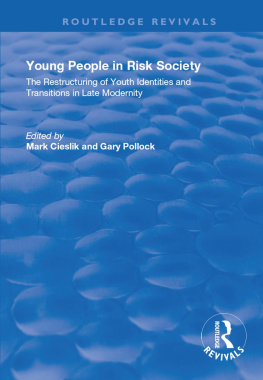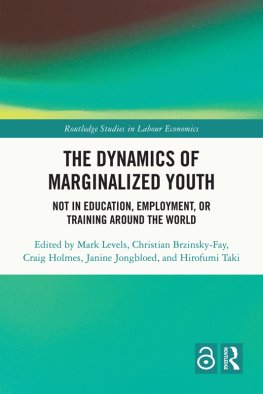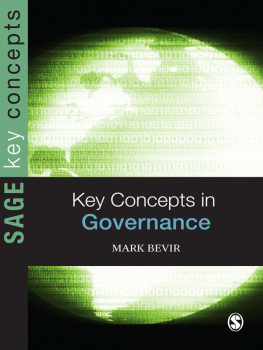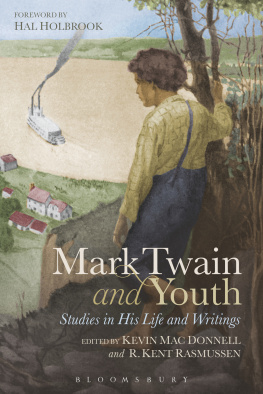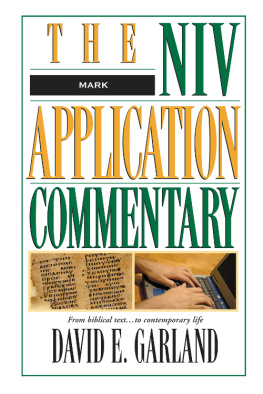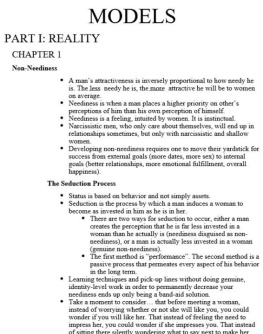Key Concepts in
Youth Studies
Recent volumes include:
Key Concepts in Tourism and
Research
David Botterill and Vincent
Platenkamp
Key Concepts in Sport and
Exercise Research Methods
Michael Atkinson
Key Concepts in Media
and Communications
Paul Jones and David Holmes
Key Concepts in Sport
Psychology
John M. D. Kremer, Aidan Moran,
Graham Walker and Cathy Craig
Fifty Key Concepts in Gender
Studies
Jane Pilcher and Imelda
Whelehan
Key Concepts in Medical
Sociology
Jonathan Gabe, Mike Bury and
Mary Ann Elston
Key Concepts in Leisure
Studies
David Harris
Key Concepts in Urban Studies
Mark Gottdiener and Leslie Budd
The SAGE Key Concepts series provides students with accessible and authoritative knowledge of the essential topics in a variety of disciplines. Cross-referenced throughout, the format encourages critical evaluation through understanding. Written by experienced and respected academics, the books are indispensable study aids and guides to comprehension.
Key Concepts in
Youth Studies
MARK CIESLIK AND DONALD SIMPSON
SAGE Publications Ltd
1 Olivers Yard
55 City Road
London EC1Y 1SP
SAGE Publications Inc.
2455 Teller Road
Thousand Oaks, California 91320
SAGE Publications India Pvt Ltd
B 1/I 1 Mohan Cooperative Industrial Area
Mathura Road
New Delhi 110 044
SAGE Publications Asia-Pacific Pte Ltd
3 Church Street
#10-04 Samsung Hub
Singapore 049483
Editor: Chris Rojek
Editorial assistant: Martine Jonsrud
Production editor: Katherine Haw
Copyeditor: Gemma Marren
Proofreader: Camille Bramall
Marketing manager: Michael Ainsley
Cover design: Wendy Scott
Typeset by: C&M Digitals (P) Ltd, Chennai, India
Printed by: MPG Books Group, Bodmin, Cornwall
Mark Cieslik and Donald Simpson 2013
First published 2013
Apart from any fair dealing for the purposes of research or private study, or criticism or review, as permitted under the Copyright, Designs and Patents Act, 1988, this publication may be reproduced, stored or transmitted in any form, or by any means, only with the prior permission in writing of the publishers, or in the case of reprographic reproduction, in accordance with the terms of licences issued by the Copyright Licensing Agency. Enquiries concerning reproduction outside those terms should be sent to the publishers.
Library of Congress Control Number: 2012941361
British Library Cataloguing in Publication data
A catalogue record for this book is available from the British Library
ISBN 978-1-84860-984-6
ISBN 978-1-84860-985-3 (pbk)
contents
about the authors
Mark Cieslik is a Senior Lecturer in Sociology at Northumbria University. He has taught youth studies for many years and has conducted several research projects into young peoples lives. His work has explored the structuring of marginal transitions into adulthood as well as young peoples experiences of schooling and education. He has been the convenor of the British Sociological Associations (BSA) Youth Study Group and has published many research papers and a number of edited volumes on youth research. He is currently convenor of the BSA Happiness Study Group and is researching the area of wellbeing and young people.
Donald Simpson is currently a Senior Lecturer in Education at Teesside University where he works on several undergraduate and postgraduate programmes in the areas of childhood, education and youth studies. He previously worked as a school teacher before becoming a contract researcher. Donald has several research interests and these include a focus on youth. He has worked upon youth research projects sponsored by organisations such as the Joseph Rowntree Foundation and the Economic and Social Research Council. Donald has authored and co-authored many publications and these include contributions reporting youth research for Policy Press, Journal of Youth Studies, Young: Nordic Journal of Youth Research and Sociology.
acknowledgements
We would like to thank Robin Haggart for all his work chasing up material for this book. We also would like to thank Northumbria University and the University of Teesside for research support that allowed us time to complete the book. We also thank the editorial team at Sage for their patience and advice during the writing process. Our thanks also go to our respective families for their support and understanding over the past few years when we have been busy working on this project.
introduction: making sense of young people today?
This book offers an introduction to the key concepts in youth studies in a way we hope is accessible to both tutors and students. Many textbooks in the social sciences are structured around lengthy chapters whereas the short entries in this text will give you the essence of some of the major debates and issues in youth studies. Our entries begin with foundational concepts and debates, which we feel represent some of the most significant areas of discussion in youth research, which are then followed by entries that reflect some of the other major research areas in youth studies. Such short entries cannot possibly hope to cover all of the developments in research but they provide a way into a particular topic and give guidance for further reading and investigation.
This introduction sets out to contextualise the different entries in the book, offering ways to link different areas of youth research that may at first glance seem unconnected. We do also make efforts throughout the text to highlight connections between entries, so where these occur we employ bold text to illustrate how, for example, the issue of crime is also linked to entries of gender or class. Although this book is written so that one can dip in and out of different entries as one might access online material, a more nuanced understanding of entries might be had if you spend a few minutes reading the next few pages. Here we give you an overview of some of the main themes in youth research that will help you situate your own particular focus of interest.
YOUTH RESEARCH: SOME KEY THEMES AND ISSUES
Our approach to studying young people, reflected in this book, is to understand youth in relation to their social identities and cultural practices as well as the life course transitions they make towards adulthood. These are analytical distinctions researchers make to ease their investigations in other words youth cultures/identities and transitions are models or shorthand forms that are used to represent a more complex empirical world. The notions of transition or identity then do not in themselves accurately depict young peoples lives young people, for example, do not make simple linear transitions from childhood to adulthood. Such analytical concepts used in youth studies have evolved over many years distilled from countless projects and come to guide the thinking of researchers and students.
In writing this book we asked ourselves a range of questions that helped us focus on the most important issues in youth research. For example, how might we define youth? Are young people those at that developmental stage between childhood and adulthood? We are also concerned with the distinctive everyday experiences that young people have in the different spheres of their lives such as education, training, leisure, work and families. How do the relationships that young people have in these settings influence how they see themselves and how others see them their social identities? With time as they age how do young peoples roles in these settings evolve, as we see with the movement from school to university or from living at home with parents to sharing a flat with friends? We are also interested in the power relationships that enmesh young people how do other actors (both individuals and more complex processes) condition (constrain and enable) young people who then create and reflect patterns of divisions and inequalities within and between the generations? For example, how do the policies and practices of state organisations influence young peoples identities and transition routes? Who are the winners and losers when governments raise the school leaving age or cut welfare benefits? What sort of agency do young people exercise so they can pursue their own interests and contest, challenge or subvert the agendas of other actors such as these governments? Do some young people enjoy more autonomy in their lives than others because of the economic or cultural resources they can access, as their parents can fund their education and housing costs?





